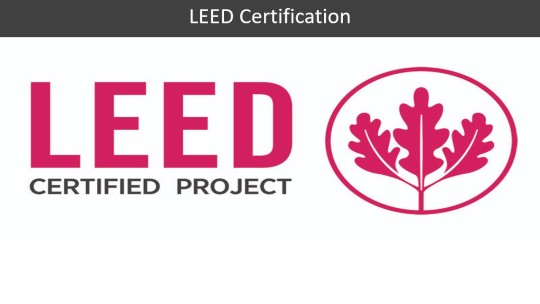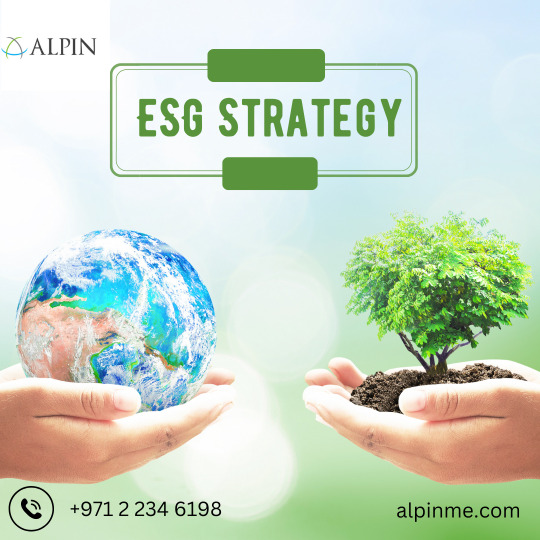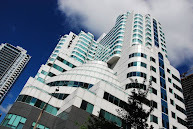#LEED certification
Explore tagged Tumblr posts
Text
Best Leed Certification Provider - PEC Greening India
Do you need a consultant in order to become LEED certified? PEC Greening India is among the greatest places in Mumbai to obtain a LEED certification. Our highly skilled personnel are here to help you with your tasks. To learn more, visit pecgreeningindia.com.
0 notes
Text
"The Role of the Best Civil Construction Company in Hyderabad in Sustainable Building"
Sustainable building practices are gaining significant traction in the construction sector. The leading civil construction company in Hyderabad plays a vital role in ensuring that projects align with environmental, social, and economic sustainability objectives. Best civil construction company in Hyderabad. Here’s how this top company contributes to sustainable building efforts.
1.Incorporating Eco-Friendly Materials by the Leading Civil Construction Company in Hyderabad A major way the leading civil construction company in Hyderabad promotes sustainable building is through the use of eco-friendly materials. Best civil construction company in Hyderabad. These include recycled steel, bamboo, and energy-efficient insulation, all of which help to lessen the environmental impact of construction. A reputable company will prioritize sourcing sustainable materials and integrating them into the building’s design to enhance energy efficiency and reduce waste. Best civil construction company in Hyderabad.
2.Energy Efficiency and Sustainable Design by the Leading Civil Construction Company in Hyderabad Energy efficiency is a fundamental component of sustainable building. The leading civil construction company in Hyderabad ensures that building designs optimize natural light, feature energy-efficient appliances, and include solar panels or green roofs. Best civil construction company in Hyderabad. These elements help to decrease energy consumption and lower the carbon footprint of the building, thereby supporting environmental sustainability.
3.Waste Management and Recycling in Sustainable Building Projects by the Leading Civil Construction Company in Hyderabad Effective waste management is crucial for sustainable building. The leading civil construction company in Hyderabad will adopt robust waste disposal practices during construction to minimize contributions to landfills. Best civil construction company in Hyderabad. This involves recycling construction debris, reusing materials whenever feasible, and ensuring that waste is sorted and disposed of in an environmentally responsible manner.
4.The leading civil construction company in Hyderabad is committed to following green building standards and certifications like LEED (Leadership in Energy and Environmental Design). Best civil construction company in Hyderabad. By adhering to these guidelines, the company guarantees that each building is designed and constructed to achieve excellent environmental performance, focusing on aspects such as water conservation, energy efficiency, and air quality.
For expert sustainable building practices, Artville Interior & Infra collaborates with the top civil construction company in Hyderabad to ensure your project aligns with the latest eco-friendly construction trends. Our team is dedicated to delivering sustainable and high-quality building solutions. Reach out to us today to find out more!
#Sustainable building#Green construction#LEED certification#Civil construction Hyderabad#Eco-friendly materials
0 notes
Text
How to Choose the Right LEED Certification Consultant for Your Needs
In today's environment-conscious world, demands for sustainable construction are constantly on the rise. Many builders and developers apply for the LEED certification as proof of their commitment to green building practices. Not only does this certificate issued by theGreen Building Certification Institute (GBCI)increase the value of property, but it also fosters a healthier environment. Achieving that is very much about partnering with a qualified green building consultant. Some of the most crucial factors to look for when selecting the right green building consultancy are:
Experience and Expertise
The first step for anyone selecting a green building consultant would be to assess the level of experience. From a pool of experience on various projects with different sectors, residential, commercial or even institutional, one might be able to believe that it's better suited to handle whatever specific requirements come with varied types of buildings. Also, check for their qualifications and certifications.
Reputation and References
Your reputation in the industry says much about your reliability and competence. Ask for referrals from other colleagues or industry peers whom you know have hired LEED consultants before. Online reviews and testimonials can also give you a good idea about the consultant's performance. A reputed green building consultancy should not hesitate to provide you with references from past clients so that you can get first-hand information about their service quality and project outcomes.
Familiarity with Local Regulations
Building standards and regulations can vary widely in different regions. The next significant thing is the selection of a consultant who is familiar with the existing local building codes and regulations, which may play an important role in the certification process. A consultant who is familiar with the local context can better guide how the LEED certification requirements can be addressed with the existing regulations, thereby making it easier to achieve the certification.
Services Offered
While some consultants offer comprehensive green building solutions with capability analyses and post-certification support, others may only be able to assist you with a LEED certification application. So, determine your needs and ensure that the consultant can support them for your project. A consultant with an entire suite of services will save you a great deal of time and resources in the long run.
Long-Term Sustainability Commitment
Consider how committed the consultancy is to sustainability. An experienced green building consultancy is interested not only in attaining LEED certification but should also motivate the adoption of sustainable principles in its operations. Their values should echo your commitment to environmental responsibility so you share common goals throughout the certification process.
To Conclude
Selecting the right green building consultancy is a step towards realising your green building dreams. Factoring in such critical parameters as experience, reputation, understanding of local regulations, variety of services offered and sustainability commitment can all work towards making an informed decision suitable for your needs. With the right partner, you will contribute to a more sustainable environment.
0 notes
Text
Advancing Sustainability in Dubai: The Role of LEED Certification and Agile Advisors
In line with the UAE's larger objective for sustainability and environmental responsibility, LEED certification is becoming increasingly respected in Dubai as a standard for sustainable building techniques. The UAE Vision 2021 and the Dubai Urban Master Plan highlight the significance of green building initiatives and promote using LEED standards in new and renovated construction projects. Sustainability Objectives: The UAE wants to improve energy efficiency and lessen its carbon footprint. By encouraging sustainable building techniques that reduce environmental impact and conserve resources, LEED certification helps achieve these objectives. Economic Benefits: Buildings with LEED certification frequently have reduced operating expenses, higher property values, and better marketability. Developers are encouraged to invest in sustainable design because of this financial advantage. Regulatory Support: Developers and property owners find LEED certification to be an appealing alternative because the Dubai Municipality and other governmental entities encourage green construction practices through incentives and rules.

A well-known consulting firm in Dubai that focuses on sustainability and green building techniques is called Agile Advisors. They are essential in guiding customers through the LEED certification in Dubai procedure. The following are some crucial facets of Agile Advisors' engagement: Professional Advice: Agile Advisors offers a wide range of consulting services, including helping clients comprehend the LEED framework and requirements and providing experience in sustainable design. Project management: They help plan and implement projects, ensuring that sustainability objectives are taken into account right away. This includes carrying out material evaluations, energy modeling, and feasibility investigations. Support for Documentation: Agile Advisors expedite the certification process and increase the likelihood of success by assisting clients in gathering the proof and documentation required for LEED submissions. Training and Workshops: To raise awareness and develop capacity among stakeholders in the construction sector, they provide training sessions and workshops on sustainable practices and LEED certification.
Many developments in Dubai, from residential complexes to office towers, have been certified LEED. These projects highlight sustainable elements and creative design, like water- and energy-saving techniques and green roofs. Dubai's dedication to sustainability requires LEED certification in UAE, and consultancies such as Agile Advisors play a critical role in making this process possible. Adopting LEED standards will be crucial to building a more sustainable urban environment as the city grows, improving the lives of its citizens and being in line with global sustainability aspirations. LEED-certified projects, from creative residential communities to landmark commercial skyscrapers, have been completed in Dubai. Innovative design and sustainable elements, like water-saving technologies, green roofs, and sophisticated energy-efficient systems, are highlighted in these projects. Each success story enhances the city's standing as a global pioneer in sustainable urban development.
0 notes
Text
LEED Green Certification
Reteal offers a robust LEED Green certification program, focusing on sustainable building practices and environmental stewardship. Our course provides in-depth knowledge of LEED standards, energy efficiency, and eco-friendly design. With expert instruction and flexible online learning, Reteal helps you achieve LEED Green certification and advance your career in sustainability.

0 notes
Text

Alpin has grown to encompass some of the world’s leading voices and thought leaders in the field of sustainable development and climate change, so much so that what started off as a niche advisory service has grown into a holistic service offering Sustainability Reporting that incorporates all of the elements and aspects that would play a role in creating a sustainable development or policy. The essence of our work lies in our flexibility, giving us the ability to match the very best consultants to your project’s needs, no matter the size or sector. We draw from a trusted pool of highly experienced, regionally based project managers as well as Decarbonization Strategies to create a winning team.
#carbon emissions calculations#decarbonization strategies#epd#green building certification#sustainability#Environmental Product Declarations#Sustainability Reporting#Acoustic Engineering#LEED Certification#WELL Certification#Independent Commissioning Authority#Commissioning Management#Net Zero Advisory#ESG Advisory
0 notes
Text

Take the first step towards a greener tomorrow with Susnomics. Our LEED consulting and certification services help you navigate the complexities of sustainable building practices
0 notes
Text
The Importance of Sustainability Reporting in Corporate Accountability

In the current landscape of corporate governance and responsibility, sustainability reporting has emerged as a critical tool for organizations aiming to demonstrate their commitment to environmental, social, and governance (ESG) principles. This article explores the significance of sustainability reporting in enhancing corporate accountability, with a focus on integrating Net Zero Advisory, LEED Certification, WELL Certification, and Commissioning Management into comprehensive sustainability strategies.
Understanding Sustainability Reporting
Sustainability reporting refers to the practice of disclosing an organization's economic, environmental, social, and governance performance. It goes beyond financial reporting by providing stakeholders, including investors, employees, customers, and communities, with transparent insights into a company's sustainability initiatives and impacts. Sustainability reports typically cover a range of metrics, from greenhouse gas emissions and energy consumption to diversity and inclusion practices, reflecting the organization's efforts towards sustainable development.
The Role of Net Zero Advisory
Net Zero Advisory services play a pivotal role in guiding organizations towards achieving carbon neutrality or net zero emissions. These advisory services assist companies in setting ambitious emission reduction targets, implementing carbon offset strategies, and integrating renewable energy solutions into their operations. By engaging Net Zero Advisory, organizations can align their sustainability goals with global climate targets, enhance operational efficiency, and mitigate climate-related risks.
LEED Certification: Leading in Sustainable Building Design
LEED (Leadership in Energy and Environmental Design) Certification is a globally recognized standard for sustainable building design and construction. It evaluates buildings based on criteria such as energy efficiency, water conservation, indoor environmental quality, and sustainable site development. Achieving LEED Certification demonstrates a commitment to environmental stewardship, enhances building performance, and improves occupant health and productivity. Integrating LEED Certification into sustainability reporting underscores a company's dedication to sustainable development and green building practices.
WELL Certification: Prioritizing Health and Well-being
WELL Certification focuses on enhancing human health and well-being in the built environment. It evaluates buildings based on factors such as air quality, lighting, water quality, nutrition, and mental health support. WELL Certified buildings are designed to promote physical and mental wellness among occupants, thereby improving productivity and reducing absenteeism. Incorporating WELL Certification into sustainability reporting highlights a company's investment in creating healthier and more productive workplaces, aligning with broader ESG goals.
Commissioning Management: Optimizing Building Performance
Commissioning Management involves the systematic process of ensuring that building systems operate efficiently and effectively according to design intent. It encompasses planning, testing, and documenting building systems during design, construction, and occupancy phases. Effective Commissioning Management improves energy efficiency, reduces operational costs, and enhances occupant comfort and satisfaction. Including Commissioning Management in sustainability reporting demonstrates proactive management of building performance and adherence to sustainability goals.
Benefits of Comprehensive Sustainability Reporting
Enhanced Transparency and Accountability: Sustainability reporting provides stakeholders with transparent information about an organization's environmental, social, and governance practices, fostering trust and accountability.
Risk Mitigation: By identifying and addressing sustainability risks, such as regulatory changes, resource scarcity, and climate impacts, companies can mitigate operational and reputational risks.
Market Differentiation: Sustainability reporting allows companies to differentiate themselves in the marketplace by showcasing their commitment to sustainable practices and attracting environmentally conscious investors and customers.
Operational Efficiency: Implementing sustainable practices, such as energy efficiency measures and waste reduction initiatives, improves operational efficiency and reduces costs over the long term.
Stakeholder Engagement: Engaging with stakeholders through sustainability reporting enables companies to respond to stakeholder expectations, build relationships, and address concerns effectively.
Challenges and Considerations
While the benefits of sustainability reporting are clear, organizations may encounter challenges such as data management complexities, resource constraints, and evolving regulatory requirements. Addressing these challenges requires robust systems, dedicated resources, and continuous improvement in sustainability performance.
Case Studies in Sustainability Leadership
Several companies have demonstrated leadership in sustainability reporting and certification integration:
LEED Platinum Certification for its headquarters, showcasing energy efficiency and sustainable design principles in its sustainability report.
WELL Certification for its office spaces, emphasizing employee health and well-being initiatives in its sustainability disclosures.
Net Zero Advisory services to develop a roadmap towards carbon neutrality, aligning its sustainability goals with global climate targets and reporting progress transparently.
Conclusion
In conclusion, sustainability reporting plays a vital role in enhancing corporate accountability by providing stakeholders with transparent insights into an organization's ESG performance. By integrating Net Zero Advisory, LEED Certification, WELL Certification, and Commissioning Management into comprehensive sustainability strategies, companies can demonstrate leadership in environmental stewardship, social responsibility, and governance practices. As businesses continue to prioritize sustainability as a core business strategy, those that embrace comprehensive sustainability reporting will not only meet stakeholder expectations but also drive innovation, resilience, and long-term value creation.
0 notes
Text
0 notes
Text
Leed Certification Provider - PEC Greening India
For LEED certification, is a consultant necessary? PEC Greening India is one of the top destinations in Mumbai to get a LEED certification. Our highly skilled personnel will be happy to help you with your tasks. The website pecgreeningindia.com has further details.
0 notes
Link
#sustainable real estate investment#green real estate#eco-friendly properties#energy-efficient buildings#green certifications#environmental consciousness#sustainable development#green building design#leed certification#breeam certification#Renewable energy in real estate#sustainable architecture#Eco-conscious tenants#Market trends in sustainability#Future-proofing portfolios#Sustainable construction#Passive solar design#green roofs#rainwater harvesting systems#resource efficiency#carbon footprint reduction#environmental regulations#Market demand for sustainability#Financial returns on green investments#Long-term sustainability goals#Sustainable property management#Environmental impact mitigation#Green living spaces#Climate-friendly real estate
0 notes
Text
Sustainability is no longer a buzzword but a prerequisite in the contemporary built environment. Central to this green revolution is the LEED (Leadership in Energy and Environmental Design) certification, a globally recognized symbol of sustainability achievement and leadership. However, the journey to LEED certification is often misunderstood as a costly one. This comprehensive guide aims to demystify the costs associated with LEED certification requirements and provide practical strategies for achieving it affordably.
0 notes
Text
hyatt
sustainability





CUT WATER AND GHG EXHAUSTIONS 2014 goals were declared: By the end of 2020, each region should have reduced its water consumption per guest night and greenhouse gas (GHG) emissions per square meter by 25% from 2006 levels. Our goal is to cut water use each visitor night in water-stressed areas by thirty percent. DIVERT WASTE Objective declared in 2014: By 2020, all hotels under management will have diverted more than 40% of their waste from landfills. meal waste control plans, such as smaller displays and à la carte meal preparation for buffets, are being developed by full-service hotels as part of an ongoing focus on this issue. Over 190,000 pounds of extra edible food were donated to nearby nonprofits. Approximately 7,000 tons of food waste were composted as opposed to being dumped in landfills.
BUY CONSCIENTIOUSLY Objectives declared in 2014: By the end of 2018, select at least eight purchase categories with more environmentally friendly options. Food. Carefully Sourced. With Care Served. In restaurants, banquet spaces, and function areas of Grand Hyatt, Hyatt Regency, Destination Hotels, Hyatt, Hyatt Centric, Hyatt Place, and Hyatt House hotels in the United States and Canada, a new coffee utilizing beans from Rainforest Alliance Certified TM farms was introduced. Construct a smart Work together to design, construct, and refurbish hotels that are more impact-free and efficient with owners and developers.LEED certification has been obtained by 54 franchised and managed properties.Building on its former Gold accreditation, Alla Villas Uluwatu attained EarthCheck Platinum, a significant achievement for the Alila hotels' EarthCheck priority.
1 note
·
View note
Text
Best Leed Certification Service Provider - PEC Greening India
Do you require a consultant for LEED certification? One of the best locations in Mumbai to acquire a LEED certification is PEC Greening India. You can get assistance from our highly qualified professionals with your duties. For more information, go to pecgreeningindia.com.
0 notes
Text
LEED courses in Dubai
Reteal provides specialized LEED courses in Dubai, designed for professionals seeking to excel in sustainable building practices. Our courses cover key LEED concepts, energy efficiency, and green building strategies. With expert instructors and flexible learning options, Reteal equips you with the skills needed to achieve LEED certification and lead in sustainability.
https://www.penname.me/@reteal_kelley
0 notes
Text
Are you ready to lead the charge towards a greener, more sustainable future? Look no further than LEED Zero Carbon Certification, the pinnacle of environmental excellence for buildings and spaces. With our certification, you'll not only make a powerful statement about your commitment to a zero-carbon world but also reap numerous benefits for your project and the planet. Join the ranks of industry leaders and visionaries who have already made the commitment to a carbon-neutral future. LEED Zero Carbon Certification isn't just a certificate – it's a testament to your dedication to a cleaner, more sustainable planet.
0 notes